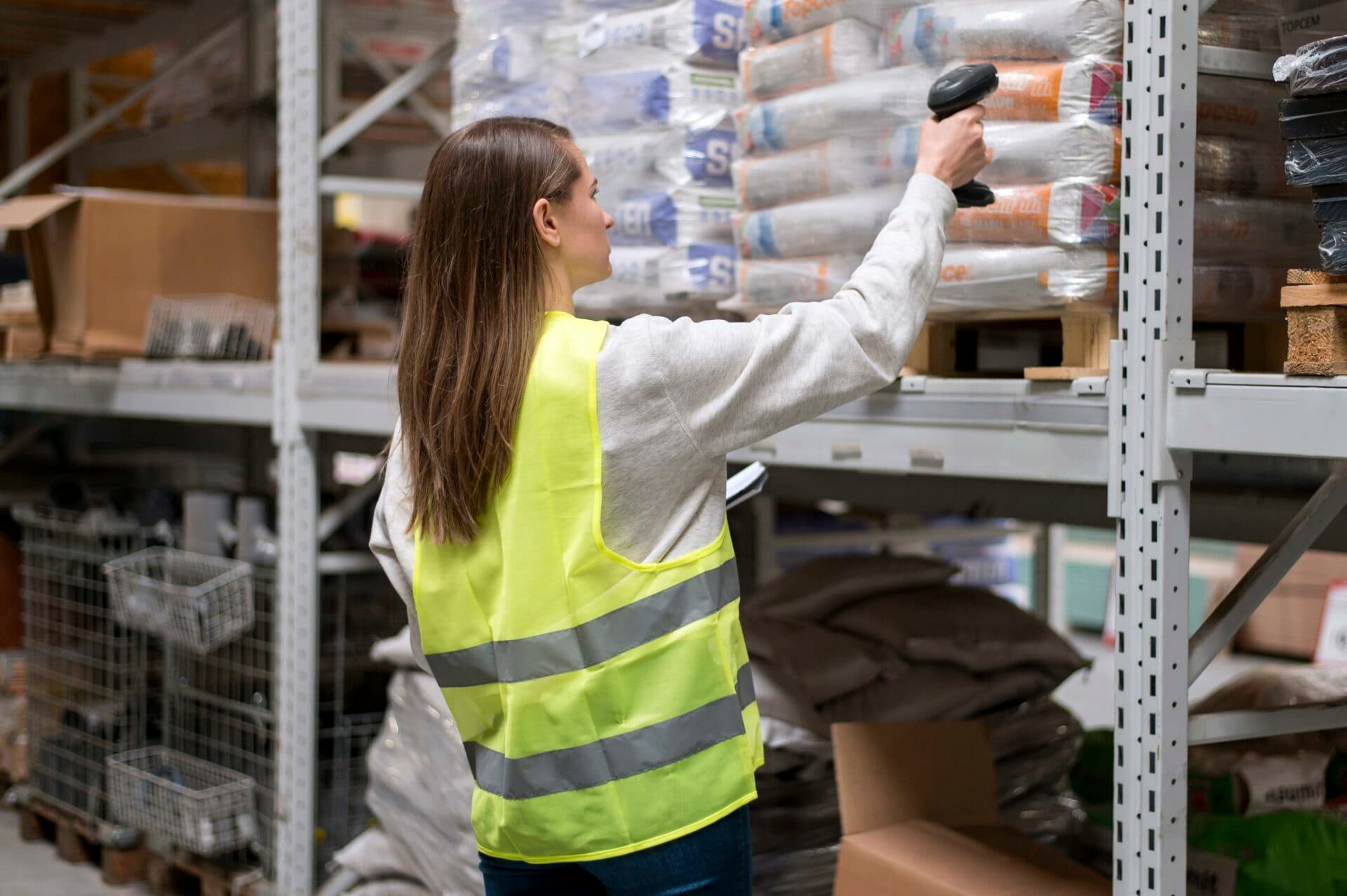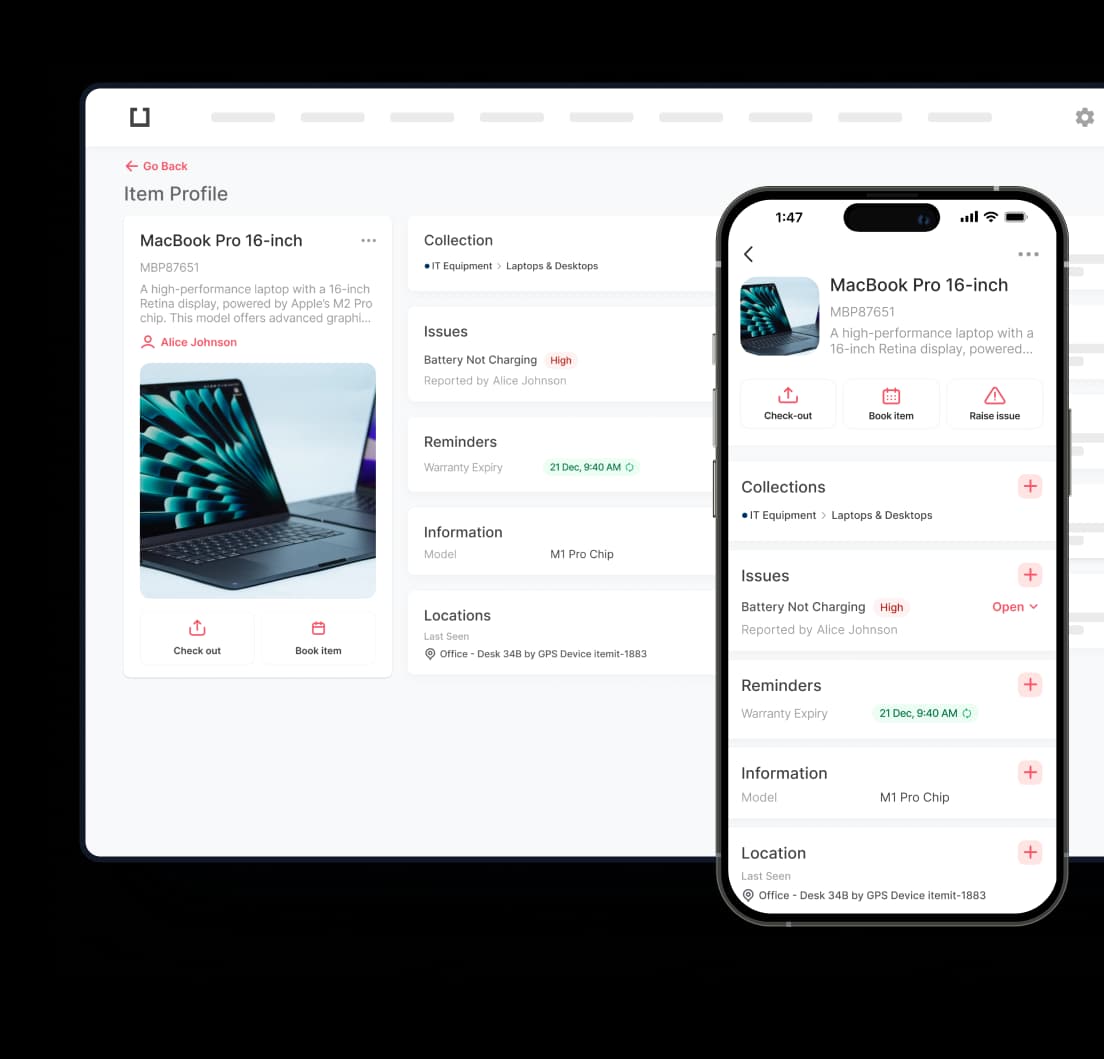Radio Frequency Identification (RFID) has transformed how businesses track assets and manage inventory. The benefits of RFID extend beyond simple tracking, offering practical advantages in resource management, cost control, and productivity.
RFID technologies use radio frequency signals to communicate between tags and readers, creating automated systems with minimal human intervention. Unlike barcodes, RFID uses wireless communication to identify and track assets in real-time. Whether managing warehouse inventory, tracking medical equipment, or monitoring assets across locations, the benefits of RFID deliver measurable results.

Key Takeaways
- RFID technologies provide real-time visibility and tracking of assets without requiring line-of-sight scanning
- Businesses can save significant time and reduce labour costs by automating manual tracking processes
- The benefits of RFID in healthcare include improved patient safety, equipment tracking, and medication management
- RFID stock management delivers up to 99% inventory accuracy compared to 60-70% with manual methods
- Implementation of RFID technologies can reduce operational costs by 20-30% while increasing productivity
- Multiple industries benefit from RFID uses including retail, manufacturing, logistics, and healthcare
- Understanding RFID advantages and disadvantages helps businesses make informed implementation decisions
How RFID Technology Works
RFID technology communicates through radio frequency signals between an RFID tag and a reader. Each tag contains a chip storing asset information and an antenna broadcasting data. When a reader sends a signal, the tag responds, enabling instant data compilation.
This process reads multiple tags simultaneously without requiring line-of-sight like barcodes. This capability makes RFID technologies superior for businesses improving tracking systems.
RFID vs. Barcode
RFID technologies differ from barcodes in critical ways. Barcodes need direct line-of-sight and individual scanning. RFID tags are read from a distance and processed in bulk. RFID readers process hundreds of tags simultaneously, dramatically speeding inventory counts. This represents the key difference in RFID advantages and disadvantages—higher initial investment but superior operational efficiency.

The Main Benefits of RFID Technology
- Real-Time Asset Tracking and Visibility - Instantly locate any asset, see who's using it, and check its status at the touch of a button
- Significant Time Savings Through Automation - Complete inventory counts in hours instead of days, eliminate manual data entry and paperwork
- Substantial Cost Reduction and ROI - Reduce labour costs by 20-30%, prevent asset loss, extend equipment lifespan through automated maintenance alerts
- Improved Accuracy and Error Reduction - Achieve 95-99% accuracy vs 60-70% with manual methods, eliminate human data entry errors
- Enhanced Inventory and Stock Management - Scan hundreds of items simultaneously, maintain optimal stock levels, reduce stockouts by 50-80%
- Streamlined Operations and Workflow Efficiency - Automate asset assignments, issue reporting, and maintenance scheduling without paperwork
- Scalability Across Multiple Industries - Adaptable for manufacturing, retail, healthcare, logistics with industry-specific applications
You’ll find more information on each advantage of RFID below.
1. Real-Time Asset Tracking and Visibility
The benefits of RFID include real-time asset tracking with unprecedented accuracy. RFID provide instant visibility into asset location, user, and current status. This transparency is invaluable for businesses managing large inventories or mobile equipment.
Locating a specific laptop in a warehouse previously required searching locations and asking colleagues, wasting time. With RFID technology, you can locate items instantly. You'll see the exact location, current user, and reservation status.
Real-time visibility extends across entire operations. Whether tracking thousands of warehouse items or monitoring equipment across sites, RFID uses provide constant, reliable asset data. This eliminates time wasted searching for misplaced items and ensures resource availability.
2. Significant Time Savings Through Automation
RFID technologies deliver impressive time savings across operations. Automation eliminates hours spent on manual tracking, counting, and verification.
Traditional inventory methods require physical counting, individual barcode scanning, and manual recording—taking days for large warehouses. With RFID inventory management, complete the same count in hours or minutes. RFID readers scan hundreds of items simultaneously as someone walks through a warehouse, automatically updating databases.
Time-saving benefits of RFID extend beyond inventory. Asset check-in/check-out becomes instantaneous. Instead of paperwork or manual logging, teams scan multiple items and assign to users with clicks. This streamlined approach shifts employee time from administrative tasks to productive work.
3. Substantial Cost Reduction and ROI
While initial RFID technology investment seems significant, long-term cost savings deliver a strong ROI. The benefits of RFID in cost reduction manifest in multiple ways.
Automation reduces labour costs substantially. Tasks requiring multiple employees now need one person with RFID equipment. This saves wages and reduces errors causing lost inventory and unnecessary purchases.
RFID stock management prevents asset loss and theft. Knowing exact asset locations reduces missing items. RFID tracking accountability discourages theft and identifies misplaced assets. Reducing inventory shrinkage alone often justifies RFID investment.
Preventive maintenance capabilities extend asset lifespans. RFID software sets maintenance reminders alerting when equipment needs inspection. Regular maintenance reduces costly breakdowns and premature replacements, ensuring teams have reliable tools that boost productivity.
Most businesses report RFID systems paying for themselves within 12-24 months through combined savings.

4. Improved Accuracy and Error Reduction
Human error in inventory management costs businesses significantly. The benefits of RFID include improvements in accuracy. While manual counting achieves 60-70% accuracy, RFID technologies deliver 95-99% accuracy rates.
This accuracy has far-reaching implications. In RFID stock management, accurate data optimises stock levels, reducing overstock tying up capital and stockouts causing lost sales. Confident inventory numbers enable better purchasing, production planning, and resource allocation decisions.
Eliminating manual data entry reduces transcription errors. RFID readers automatically capture and transmit data, eliminating typos, misreads, and forgotten entries. This reliability is crucial in regulated industries requiring accurate records.
5. Enhanced Inventory and Stock Management
RFID stock management represents a quantum leap from traditional inventory control. The benefits of RFID transform how businesses handle inventory, from retail stores to distribution centres.
With RFID technologies, inventory counts can take days to complete in hours. Walk through warehouses with RFID readers, automatically capturing data from hundreds of tags simultaneously. This speed enables frequent counts, giving up-to-date stock level visibility. Frequent counts identify and address discrepancies quickly rather than discovering problems during annual audits.
Real-time RFID stock management improves demand forecasting and replenishment. Accurate, current data about inventory levels and movement enables better prediction of reorder timing and quantities. This optimisation reduces carrying costs while ensuring product availability.
In retail, key benefits of RFID include maintaining optimal sales floor stock levels. RFID systems alert staff when popular items run low, ensuring timely replenishment and preventing lost sales. Advanced implementations enable customers to check item availability via mobile apps, improving the shopping experience.
6. Streamlined Operations and Workflow Efficiency
Operational benefits of RFID extend throughout business workflows. By automating tracking and data collection, RFID technologies eliminate bottlenecks and streamline processes.
Asset assignment and management become seamless with RFID. Instead of paperwork for equipment checkout, employees scan items and digitally assign to users. This streamlined process saves time and creates automatic audit trails of equipment usage.
Fixed asset registers become straightforward with RFID. Affix RFID tags to assets and create digital profiles containing purchase date, cost, warranty details, insurance information, photographs, and instruction manuals. This centralised repository ensures critical asset data is always accessible.
Issue reporting and maintenance workflows benefit from RFID automation. When equipment malfunctions, employees quickly report issues through the RFID system with problem notes. This immediate reporting enables faster response and better maintenance tracking. Automated maintenance scheduling ensures preventive maintenance never gets overlooked, reducing unexpected downtime.
These workflow improvements create significant productivity gains. With an RFID tag tracking system, all information is readily available, and employees focus on core responsibilities rather than administrative tasks.
7. Scalability Across Multiple Industries
The benefits of RFID include versatility and scalability across diverse industries. RFID uses span healthcare to retail, manufacturing to logistics, with unique advantages per sector.
Manufacturing
In manufacturing, the benefits of RFID include improved inventory tracking, reduced manual labour, and enhanced production efficiency. RFID technologies enable real-time tracking of raw materials, work-in-progress items, and finished goods. This visibility minimises waste, prevents production delays, and optimises supply chains.
Retail
Retail businesses leverage RFID technologies for better stock visibility, faster checkouts, and reduced theft. RFID stock management accuracy virtually eliminates stockouts while preventing overstock. Retailers report inventory accuracy improvements from 65% to 99% after implementing RFID, directly impacting customer satisfaction and sales.
Logistics and Supply Chain
In logistics, RFID uses simplify shipment tracking, reduce errors, and ensure timely delivery. Companies spend less time manually tracking shipments while gaining unprecedented supply chain visibility. Real-time tracking from warehouse to destination represents significant competitive advantage.
Healthcare
The benefits of RFID in healthcare address critical patient safety and operational efficiency needs. RFID technologies help healthcare facilities track medical equipment, manage medication inventory, and monitor patient movement. Hospitals use RFID ensuring critical supplies and equipment are always available where needed, improving patient outcomes and streamlining operations.
RFID enables healthcare providers to track high-value equipment like wheelchairs, IV pumps, and monitoring devices, reducing loss and ensuring availability. In medication management, RFID prevents errors by verifying patients receive the correct medications at the correct dosages. These applications demonstrate how the benefits of RFID in healthcare directly contribute to better patient care and safety.

Transform Your Business with RFID
The benefits of RFID apply across all industries—from healthcare and retail to manufacturing and logistics. RFID technologies deliver measurable improvements in efficiency, accuracy, and cost reduction regardless of the sector.
Small businesses gain the most significant advantages from RFID implementation. Lower labour costs, reduced asset loss, and automated workflows create competitive advantages previously available only to large enterprises.
The question isn't whether RFID stock management and tracking benefit your business—it's how quickly you implement to realise advantages. Consider pilot programs in single departments or facilities to test technology and train staff before company-wide rollout. With proper planning and strategy, the benefits of RFID in healthcare, retail, manufacturing, and other industries are within reach for all business sizes.
To learn more about asset tracking and how RFID can transform operations, contact us at team@itemit.com. Sign up for a 14-day free trial to experience the benefits of RFID firsthand.





